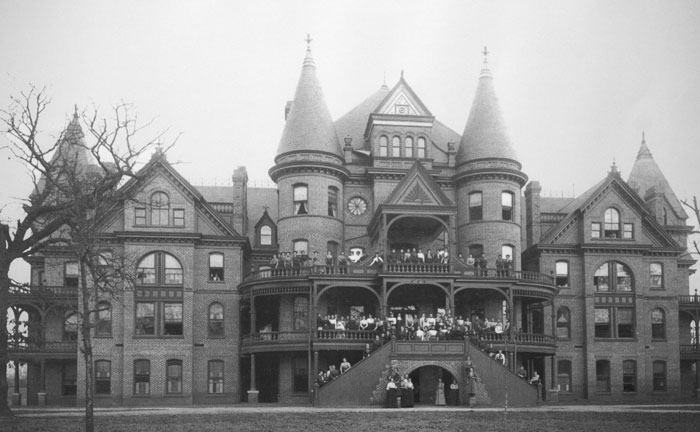
Welcome
The North Carolina Baptist Convention founded Meredith College in Raleigh, North Carolina in 1891 as the Baptist Female University. Grounded in the liberal arts and committed to professional preparation, for over 125 years Meredith College has educated and inspired students to live with integrity and provide leadership for the needs, opportunities and challenges of society. In keeping with that mission, Meredith College is committed to fostering an inclusive and pluralistic campus environment where all are welcomed into our living, learning, and working community. To assist the college in that ongoing endeavor, in 2020 Meredith College implemented a campus wide initiative that seeks to understand the realities of its history and any linkage to systemic racism. It is our belief that this action-oriented, transparent, and root-focused work will support the college in its ongoing mission of fully serving our whole community.
Like many regional institutions, the investigation into our history demonstrates that throughout much of the early twentieth century the college failed in significant ways to measure up to our contemporary vision and mission. Much of the college’s early leadership and faculty reflected regional racial attitudes and incorporated significant aspects of the Lost Cause tradition into the campus community. Recent research demonstrates that college trustees and faculty like Charles B. Aycock, James Yadkin Joyner, and Delia Dixon-Carroll played significant roles in North Carolina’s 1898 White Supremacy Campaign, the movement to disenfranchise African-Americans, as well as efforts to implement and reinforce the new Jim Crow regime. In 1909, the board of trustees renamed the institution after Thomas Meredith, a leading antebellum North Carolina Baptist minister and vocal advocate for women’s education. While the board renamed the college in honor of Meredith’s support for women’s education, his life also reflected characteristics celebrated by Lost Cause enthusiasts. The Pennsylvania-born Meredith embraced slavery during his ministry in antebellum North Carolina and, as the editor of the Biblical Recorder, the newspaper for the North Carolina Baptist denomination, stridently opposed abolition while defending slavery as “entirely defensible on the moral and religious principles of the gospel.” Overall, these patterns reflect the fact that Meredith College, like many other North Carolina educational institutions, secured their status and helped cement the ideals of White supremacy in post-Civil War North Carolina by openly embracing and promoting Jim Crow and the Lost Cause through its leadership, educational programs, and students. It is the Locating Slavery’s Legacies research team’s intention that sharing our campus’ connection to slavery and the Lost Cause will help scholars and the public better understand educational institutions’ roles in promoting structures of inequality in the past and equip future generations with greater awareness and tools to combat such manifestations in the years to come.
Meredith College's Locating Slavery's Legacies Research Team is led by Daniel L. Fountain, Professor of History, Director of the Public History Program, and Universities Studying Slavery Research Team Member. Gwyneth R. Thomas, a double major in music and history at Meredith College serves as the team's research assistant. Ms. Thomas is a member of the Meredith College Class of 2023.
Database Entries also contributed by the Spring 2024 Introduction to Public History class.